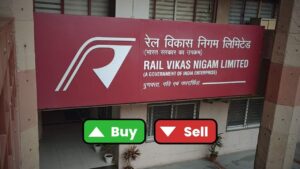The Order-to-Cash (OTC) process is a critical component of business operations, ensuring seamless transactions from order placement to revenue realization. Over the years, technological advancements have transformed OTC workflows, integrating automation, artificial intelligence (AI), and cloud-based solutions to enhance efficiency and accuracy. The shift from legacy systems to modern digital platforms has streamlined order management, billing, and payment processing, leading to cost savings and operational improvements for businesses worldwide. In this evolving landscape, professionals who drive transformation play a vital role in shaping the future of OTC systems.
One such leader is Jagan Mohan Rao, a seasoned IT professional who has significantly contributed to OTC system enhancements, legacy migrations, and automation frameworks. With a career spanning major Fortune 500 companies, including Xerox, General Motors (GMAC), Clorox, and Ryder, he has been instrumental in optimizing OTC processes across various industries. “Bridging the gap between legacy infrastructure and modern technology has been a core focus of my work,” says Rao, reflecting on his journey in IT transformation. His expertise in mainframe development, automation, and AI-driven solutions has led to significant efficiency gains and cost savings for the organizations he has worked with.
Rao’s professional achievements are marked by his role in developing and implementing OTC applications at Xerox, where he streamlined order processing and invoicing using COBOL, JCL, DB2, and CICS. His leadership in migrating legacy AS400 systems to Oracle applications at Cox Automotive resulted in a 50% reduction in order-to-cash processing time. At Capgemini, he progressed to the role of Test Manager, overseeing large-scale IT projects that enhanced billing accuracy and reduced manual interventions. Additionally, his work in automation—utilizing tools like TestComplete, Selenium, and Tricentis TOSCA—has cut regression testing efforts by 60%, improving software reliability and release cycles.
His OTC system enhancements at Xerox reduced manual processing time by 40%, lowering operational costs. His automated billing solutions for Ryder’s fuel transactions minimized errors by 70%, improving cash flow management. At Clorox, his Laboratory Information Management System (LIMS) implementation increased workflow efficiency by 35%, enabling faster time-to-market for new formulations. Moreover, his research in GenAI-driven test automation is projected to save over $50,000 annually in test maintenance and defect triaging, demonstrating his commitment to innovation in enterprise IT.
Rao’s influence extends to some of the most significant IT transformation projects in the industry. His involvement in the “Gavel to Gate” initiative at Cox Automotive ensured a seamless migration of AS400-based OTC systems to Oracle, enhancing transaction speed and accuracy. His leadership in Ryder’s billing automation project refined fuel invoicing for over 7,000 users across 800 locations. Furthermore, his migration of regression test scripts from Selenium C# to Tricentis TOSCA accelerated test execution by 50%, improving stability in high-volume financial transactions. Through his expertise, he has played a crucial role in modernizing legacy systems and implementing scalable automation frameworks.
The challenges Rao has overcome highlight his problem-solving acumen and strategic vision. When faced with integration delays between legacy and cloud-based OTC systems at Cox Automotive, he developed a robust test strategy covering AS400, Oracle, Salesforce, and middleware, ensuring a seamless transition. To address the inefficiencies in Ryder’s fuel billing processes, he led an automation strategy that eliminated manual data entry errors and accelerated transaction processing. Additionally, his AI-driven approach to test optimization has significantly reduced manual testing efforts, enabling faster software releases while maintaining quality assurance.
His thought leadership is also reflected in his published works, which provide valuable insights into IT transformation. His research on “Transformation of Legacy Automotive Systems” explores the challenges and solutions in migrating AS400 to Oracle applications. His paper on “Enhancing Billing Systems” discusses the optimization of OTC billing processes, reducing transaction discrepancies and improving financial tracking. Through his contributions, Rao has established himself as a thought leader in the domain of OTC automation and legacy modernization.
Looking ahead, Rao envisions a future where AI and blockchain redefine OTC processes. “AI-driven analytics and predictive modeling will become standard in OTC workflows, enabling businesses to anticipate order delays, optimize pricing models, and enhance cash flow forecasting,” he explains. He also foresees blockchain playing a pivotal role in transaction transparency, reducing fraud and ensuring secure financial interactions. With cloud-native OTC solutions gaining traction, he advocates for a gradual migration approach, ensuring business continuity while using AI-powered data mapping tools for smoother transitions.
In an era where digital transformation dictates business success, professionals like Jagan Mohan Rao are leading the charge in reshaping OTC systems. His expertise in legacy migrations, automation, and AI-driven enhancements has not only optimized business operations but also set new benchmarks for efficiency and cost-effectiveness. As organizations continue to embrace next-generation technologies, Rao’s insights and contributions will remain invaluable in driving innovation and excellence in the OTC domain.












